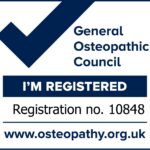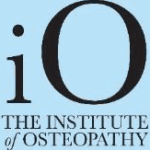In recent times, the importance of maintaining a robust immune system has been underscored more than ever. With the global health landscape continually evolving, individuals are seeking ways to bolster their body’s defences against various pathogens. While conventional methods like vaccinations, proper nutrition, and regular exercise play crucial roles, complementary approaches such as osteopathic treatment are gaining recognition for their potential to enhance immune function. This article delves into the realm of osteopathy and explores how it can contribute to fortifying the body’s immune response.
Understanding Osteopathic Treatment:
Osteopathy is a holistic approach to healthcare that emphasises the interrelation between the body’s structure and its function. Founded in the late 19th century by Dr. Andrew Taylor Still, osteopathic medicine operates on the principle that the body has an innate ability to self-heal and self-regulate. Osteopathic practitioners utilise a hands-on approach to diagnosis, treatment, and prevention of illness or injury. Central to the osteopathic practice is the concept of the musculoskeletal system’s influence on overall health.
Boosting Immune Function through Osteopathic Manipulative Treatment (OMT):
Osteopathic Manipulative Treatment (OMT) is a cornerstone of osteopathic medicine. It involves various manual techniques applied to manipulate muscles, joints, and tissues to improve function, alleviate pain, and enhance overall health. While traditionally associated with managing musculoskeletal conditions, research suggests that OMT may also play a role in modulating immune function.
- Enhancing Circulation: OMT techniques such as myofascial release and lymphatic pump can promote better circulation throughout the body. Improved circulation facilitates the efficient transport of immune cells, antibodies, and nutrients, thereby enhancing the body’s ability to combat infections.
- Alleviating Stress: Chronic stress weakens the immune system, making individuals more susceptible to illnesses. OMT techniques, such as craniosacral therapy and soft tissue manipulation, can help reduce stress levels by promoting relaxation and releasing tension stored in the body. By alleviating stress, OMT indirectly supports immune function.
- Balancing the Autonomic Nervous System: The autonomic nervous system plays a crucial role in regulating immune responses. OMT techniques targeting the autonomic nervous system, such as osteopathic cranial manipulation, aim to restore balance between the sympathetic and parasympathetic branches. This balance is essential for optimal immune function.
- Improving Respiratory Function: OMT techniques focused on the thoracic region can enhance respiratory function by optimizing lung mechanics, promoting better oxygenation, and facilitating the clearance of respiratory secretions. A healthy respiratory system is vital for defending against respiratory infections.
- Enhancing Lymphatic Drainage: The lymphatic system is integral to immune function, as it helps remove toxins, waste products, and pathogens from the body. OMT techniques like lymphatic pumps can stimulate lymphatic flow, improving immune surveillance and response.
Clinical Evidence and Studies:
While the mechanisms underlying the immunomodulatory effects of OMT are still being elucidated, several studies have provided insights into its potential benefits:
- A study published in the Journal of the American Osteopathic Association found that OMT was associated with a significant increase in circulating lymphocytes, a type of white blood cell involved in the immune response.
- Another study in the International Journal of Osteopathic Medicine demonstrated that OMT reduced levels of pro-inflammatory cytokines while increasing anti-inflammatory cytokines, suggesting a favourable modulation of the immune system.
- Research published in the Journal of Manipulative and Physiological Therapeutics indicated that OMT may enhance natural killer (NK) cell activity, which plays a crucial role in the body’s defence against viral infections and malignancies.
These findings underscore the potential of OMT as a complementary approach to bolstering immune function. However, further research, including randomised controlled trials, is warranted to validate these findings and elucidate the optimal protocols for immune enhancement through osteopathic treatment.
Practical Tips for Immune Support:
In addition to osteopathic treatment, individuals can adopt lifestyle practices to support immune function:
- Maintain a balanced diet rich in fruits, vegetables, lean proteins, and whole grains.
- Engage in regular physical activity to promote circulation and overall health.
- Prioritise quality sleep to allow the body to rest and regenerate.
- Manage stress through relaxation techniques such as meditation, yoga, or deep breathing exercises.
- Stay hydrated to support optimal bodily functions, including immune response.
- Practice good hygiene, including handwashing and respiratory etiquette, to prevent the spread of infections.
Osteopathic treatment, particularly OMT, offers a holistic approach to enhancing immune function by addressing structural imbalances, promoting circulation, reducing stress, and optimising bodily functions. While more research is needed to fully understand the mechanisms and efficacy of OMT in immune modulation, existing evidence suggests its potential as a valuable adjunct to conventional healthcare. By integrating osteopathic principles into comprehensive wellness strategies, individuals can empower themselves to maintain resilient immune systems and lead healthier lives.





